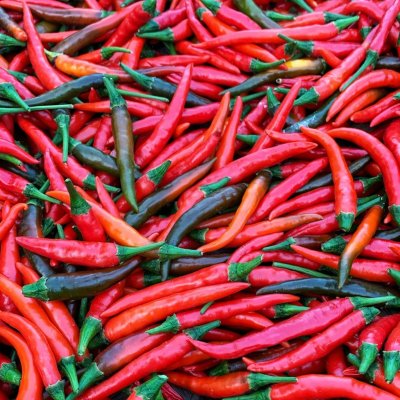qué vas a comer
- Dictionary
qué vas a comer(
keh
bahs
ah
koh
-
mehr
)A phrase is a group of words commonly used together (e.g., once upon a time).
1. (informal) (what food you're going to have; in statements; singular)
A word or phrase used to refer to the second person informal “tú” by their conjugation or implied context (e.g., How are you?).
a. what you're going to eat
Si me dices qué vas a comer con la cerveza, te lo pido. - Una bolsa de papas, por favor.If you tell me what you're going to eat with your beer, I'll order it. - A bag of chips, please.
2. (informal) (what you're going to eat for lunch; in statements; singular) (Mexico) (Spain)
A word or phrase used to refer to the second person informal “tú” by their conjugation or implied context (e.g., How are you?).
Regionalism used in Mexico
Regionalism used in Spain
a. what you're going to have for lunch
Si no haces la compra, no sé qué vas a comer porque no hay nada en la nevera.If you don't do the shopping, I don't know what you're going to have for lunch because there's nothing in the fridge.
3. (informal) (what you're going to eat for dinner; in statements; singular) (Latin America)
A word or phrase used to refer to the second person informal “tú” by their conjugation or implied context (e.g., How are you?).
Regionalism used in Latin America: all the countries in South America, Central America, and the Caribbean. Does not include Spain.
a. what you're going to have for dinner
Recuérdame qué vas a comer. - Te dije que algo ligero, porque almorcé mucho.Remind me what you're going to have for dinner. - I told you I'm having something light because I had a lot for lunch.
4. (informal) (what food are you going to have; in questions; singular)
A word or phrase used to refer to the second person informal “tú” by their conjugation or implied context (e.g., How are you?).
a. what are you going to eat
¿Qué vas a comer ahora? Vamos a almorzar en diez minutos. ¿No puedes esperar?What are you going to eat now? We'll be having lunch in ten minutes. Can't you wait?
5. (informal) (what are you going to eat for lunch; in questions; singular)
A word or phrase used to refer to the second person informal “tú” by their conjugation or implied context (e.g., How are you?).
a. what are you going to have for lunch
¿Qué vas a comer mañana? Yo no vendré a casa porque tengo una reunión.What are you going to have for lunch tomorrow? I won't be coming home because I have a meeting.
6. (informal) (what are you going to eat for dinner; in questions; singular)
A word or phrase used to refer to the second person informal “tú” by their conjugation or implied context (e.g., How are you?).
a. what are you going to have for dinner
¿Qué vas a comer esta noche? - Ya lo pensaré, todavía es muy temprano.What are you going to have for dinner this evening? - I'll think about it. It's still very early.
Examples
Machine Translators
Translate qué vas a comer using machine translators
Random Word
Roll the dice and learn a new word now!
Want to Learn Spanish?
Spanish learning for everyone. For free.
















